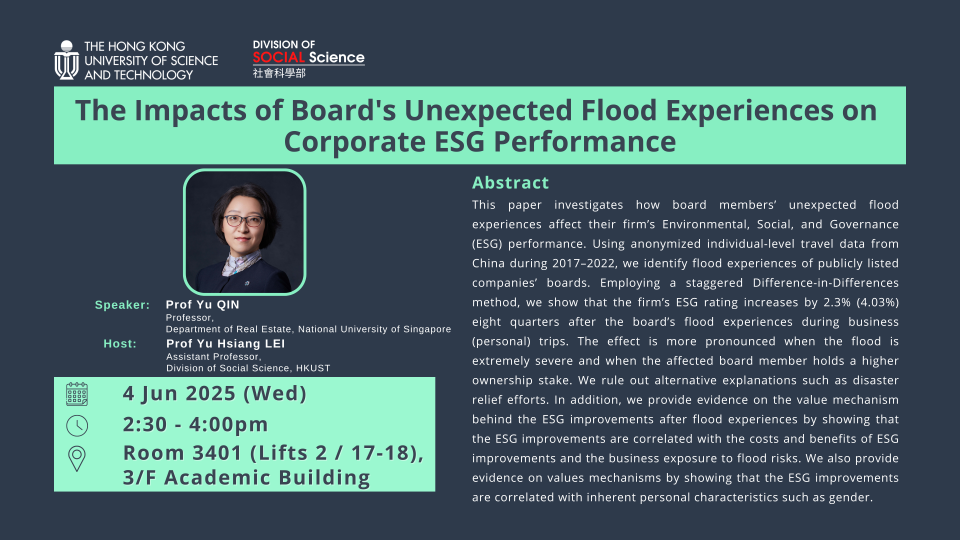This paper investigates how board members’ unexpected flood experiences affect their firm’s Environmental, Social, and Governance (ESG) performance. Using anonymized individual-level travel data from China during 2017–2022, we identify flood experiences of publicly listed companies’ boards. Employing a staggered Difference-in-Differences method, we show that the firm’s ESG rating increases by 2.3% (4.03%) eight quarters after the board’s flood experiences during business (personal) trips. The effect is more pronounced when the flood is extremely severe and when the affected board member holds a higher ownership stake. We rule out alternative explanations such as disaster relief efforts. In addition, we provide evidence on the value mechanism behind the ESG improvements after flood experiences by showing that the ESG improvements are correlated with the costs and benefits of ESG improvements and the business exposure to flood risks. We also provide evidence on values mechanisms by showing that the ESG improvements are correlated with inherent personal characteristics such as gender.
Yu Qin is a Professor in the Department of Real Estate at NUS Business School. Her research focuses on environmental and urban economics, with publications in Economic Journal, Journal of Labor Economics, Journal of Public Economics, JEEM, Nature Climate Change, and Nature Human Behaviour. She is Co-Editor of China Economic Review, Associate Editor of JEBO, and serves on the editorial boards of Journal of Economic Geography and JEEM. She received her B.A. in Finance from Peking University (Guanghua School of Management) in 2009 and her Ph.D. in Applied Economics from Cornell University in 2014.
Host: Prof Yu Hsiang LEI, Assistant Professor, Division of Social Science, HKUST

